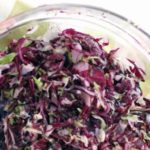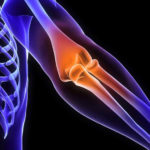Emotional Health: The Gut Brain Connection
by Chelsea Garcia, MEd ACSM Certified Exercise Physiologist
Depressive disorders are the leading source of disability globally, and the identification of new targets for prevention and management is imperative. A rapidly emerging field of research suggests that the microbiome-gut-brain connection is of substantial relevance to mood. Similarly, unhealthy diet which alters gut bacteria has correlated as a risk factor for depression.
Research in rodents has shown an onset of depressive behavior following fecal transplantations from patients with Major Depressive Disorder. On the other hand, observation of stress and depressive behavior in rodents resulted in reduced gut microbiota richness and diversity.
When you feel off or out of whack, when your behavior changes in ways you don’t understand, this change may begin in your microbiome. Not in your head.
Communication between the gut and the brain is finely orchestrated by different systems, including the endocrine, immune, autonomic, and enteric nervous systems. Increasing evidence supports the role of the microbiome and microbiota-derived molecules in regulating these interactions. New dietary interventions also suggest the possible utility of pre and probiotic formulations and fermented food in influencing your mental health and mood.
What is considered a “Good Microbiota?” There are the 3 P’s that your gut bug loves: PREbiotics, PRObiotics, and polyphenols.
PREbiotics are the non-digestible fiber that comes from foods like garlic, bananas, onions, and asparagus. PREbiotics feed the PRObiotics. PRObiotics are live beneficial bacteria that are created through consuming fermented food like kimchi, sauerkraut, yogurt, and kombucha. There are also PRObiotics that are already present in your gut. Polyphenols are found in your cruciferous veggies like cabbage, broccoli, cauliflower, kale, turnips, and brussels sprouts and often have anti-inflammatory properties.
Changing your dietary nutrients will change your gut microbes in a different way than exercise. Exercising has shown to help increase levels of short chain fatty acids which will promote a healthy gut and reduce inflammation.
To improve your microbiome through nutrition, include lean protein, healthy fats, and lots of fruits and veggies in your meals and throughout the day. Drink plenty of water throughout the day. 8 glasses or 60-80oz. per day is a good place to start. Hydration will improve your immunity, remove risk of dehydration and digestive system slow down.
Our sense of well-being and mental health relate closely to our nutrition, specifically, feeding our microbiome foods that promote mental and physical health.
- Coconut Oil has been shown to kill pathogens in a natural way. Try switching to cooking with coconut oil or mix it in with smoothies or baked goods; it also helps balance out your stomach’s acidity levels by killing off the bad bacteria.
- Cloves & Cinnamon can be added to coffee or teas to help naturally kill microbes that could harm your immune system.
- Turmeric has anti-inflammatory properties because it contains curcumin which is also a powerful antioxidant. It also inhibits the cox-2 gene, which promotes inflammation in the body.
- Apple Cider Vinegar will help your body create more hydrochloric acid which is helpful to your stomach as it will aide in the digestion of all 3 macronutrients (carbs, fats, protein).
- Sauerkraut and other fermented foods as mentioned above will help with indigestion and helps with other IBS symptoms.
Gluten Free Diets
Given the popularity of a gluten-free diet in the general population, researchers carried out a study in 60 healthy adults, comparing a low-gluten diet to a high-gluten diet. The research indicates that there is no need to encourage people to follow a gluten-free diet, unless they suffer from Celiac Disease or a digestive disturbance related to gluten; instead, they have everything to gain by diversifying their diet, as usually recommended by nutritionists.
Research indicates that a gluten-free diet changes the composition of the gut microbiota bacteria.
When healthy individuals eat a gluten free diet their good bacteria levels decrease, and pathogenic bacteria levels increase along with a decrease in immune function. Based on these results, it is suggested to leave gluten in the diet unless you are medically diagnosed with a gluten sensitivity or intolerance.
EXERCISE
Fatigue, mood disturbances, under performance and gastrointestinal distress are common among athletes during training and competition.
The gut is home to trillions of microorganisms that have fundamental roles in many aspects of human biology, including metabolism, endocrine, neuronal and immune function. The gut microbiome also influences the intestinal barrier and immune function. Recent evidence in research models shows that there is a high correlation between physical and emotional stress during exercise, and changes in gastrointestinal microbiota composition.
Due to the complexity of stress responses in elite athletes (from leaky gut to increased catabolism and depression), defining standard diet regimes is challenging. However, the preliminary experimental data obtained from studies using probiotics and prebiotics studies show some interesting results.
We’ve learned that the microbiota acts like an endocrine organ (e.g. secreting serotonin, dopamine or other neurotransmitters) and may control the HPA axis (feedback interactions among three components: the hypothalamus, the pituitary gland, the thalamus and the adrenal) in athletes.
Elite athletes often suffer from psychological and gastrointestinal conditions that can be linked to the gut. PHASE IV dietary recommendations for elite and endurance athletes increase microbiota diversity and functionality. Protecting and enhancing the microbiota must be incorporated in every athletes’ nutrition plan. The goal is to feed the good bacteria in their gut.
For most of us, exercising regularly helps maintain our microbiota. Exercise naturally aids our mental health and well-being by stimulating our metabolism and hormones. A combination of cardiovascular, resistance training and flexibility exercises can also help improve your gut microbiome. As we have discussed, a healthy gut microbiome contributes to healthy brain function and mood stabilization.
During and after exercise, hormones naturally regain balance and gain homeostasis. Long distance runners know this feeling well, it is often referred to as a “Runners High; ” because endorphines, a group of hormone peptides, activate the body’s opiate receptors, causing an analgesic effect.
Stress and emotional distress have a negative impact on your gut. A few ways to combat increasing stress, anxiety and increased cortisol levels include mindful breathing and meditation. Keeping your stress levels and mood in check will allow your gut to flourish. Try the following exercise at home or in a relaxing space to help melt away stress and improve your mental health!
Mindful Breathing Exercise:
• Begin sitting or lying in a comfortable supportive position
• Take note of your breath and feel yourself inhale and exhale
• Notice how much your chest or abdomen rises and falls during your breathing
• Take 10 breaths, then start taking slightly deeper breaths
• Try to make your exhale longer than your inhale
• Focus in on your breath and if your mind wanders bring it back to your breath
Complete this exercise for 5-10 minutes each day to de-stress.
A microbiome out of balance can increase your risk of depression and take a toll on you physically as well. It’s important to keep your mental health in check and one way to do that is to make sure you are taking good care of your gut!
Adjusting to the realities of a pandemic naturally increase the level of stress we feel everyday. One of the best ways to reduce stress and anxiety is to focus on your own health. If you need help putting your nutrition and exercise program on task, please give us a call and we will schedule a private consultation to address your needs and goals.
Give us a call at 310-582-8212 or email chelsea@phase-iv.net or Shelby@phase-iv.net to set up a FREE Consultation or just to chat about your goals and how we can help you meet them.
Article Sources:
Dietary Effects on Microbiota—New Trends with Gluten-Free or Paleo Diet Yurdagül Zopf,1,2,*Dejan Reljic,2 and Walburga Dieterich2
Exercise-induced stress behavior, gut-microbiota-brain axis and diet: a systematic review for athletes. Clark A1, Mach N2.
Lea B.S. Hansen et al. A low-gluten diet induces changes in the intestinal microbiome of healthy Danish adults. Nature communications (2018) 9:4630. DOI: 10.1038/s41467-018-07019-x www.nature.com/naturecommunications
Wheat, Microbiome and Health: The Science Behind Gut Health and Food Intolerances
Corrie Whisner, PhD Assistant Professor of Nutrition Arizona State University
The Gut Microbiome in Health and in Disease
Andrew Shreiner; John Kao; Vincent Young







